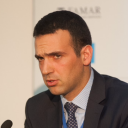Up until 2009, Greek philanthropic foundations’ priorities were mainly education, culture, people with special needs, the protection of the environment and the improvement of medical treatment – medical equipment for hospitals, renovation of hospitals. Any funding related to welfare provision was mostly related to immigrants, drug users or victims of trafficking. The prevalence of populism in politics and the adoption of the wrong attitude and mentality both by the elite and the common man over the last 40 years, unfortunately, led Greece into an unprecedented economic and social crisis.
Since 2010, and as a direct consequence of the crisis, Greece has cut public spending by more than €65 billion and for the past five years, Greek governments have made large cuts in the social welfare system, in education as well as in municipal budgets. As a result, pressure has increased on social services at a time when Greeks — drained by an economy struggling to survive — need them most. NGOs providing social welfare (food, healthcare, homeless shelters, legal services and psychological counseling) are urgently asked to fill in the gaps of a social safety net that has been adversely affected by five years of austerity. Today, around half of their beneficiaries are ordinary Greeks. Approximately 2.5 million Greeks are living below the poverty line, while 3.8 million are in direct danger of crossing the poverty line due to material deprivation and unemployment. Around 800,000 Greeks had been cut off from medical access by lack of insurance or poverty. Unemployment is now at 27.1% with youth unemployment at 60% and the figures are rising.
‘The promotion of innovation and entrepreneurship is key to tackling issues such as high unemployment levels or what is known as brain drain – young and educated Greeks leaving the country as they see no future here.’
A number of human rights issues horizontally affect the population of Greece. Among those, access to justice stands out while the economic crisis has added one more consideration, namely ensuring protection and the actual employment of social rights. Following the weakening of the family protective net, an increasing number of people find themselves in dire need to learn how to effectively claim their social rights, such as entitlements to benefits.
In addition, the government, plagued by the debt crisis, is also struggling to manage an immense flood of immigrants and refugees. Between January and June 2015, 68,000 migrants have arrived in Greece by sea, according to the United Nations High Commissioner for Refugees. That makes Greece Europe’s main entry point for migrants. With limited capacity and resources, the Greek state and NGOs appeared unprepared to cope with this issue.
Philanthropic foundations could not stay apathetic. Some channeled the majority of their funds towards projects related to welfare provision and social inclusion while others attracted funds from abroad in order to increase their capacity. The Bodossaki Foundation was appointed as the fund operator for the EEA Grants NGO Programme for Greece, ‘We are all Citizens’, supporting civil society with 7 million euros for a period of two years, impacting the lives of more than 100,000 people as direct beneficiaries. At the same time, we operate a philanthropy unit within our foundation to facilitate more donations from abroad.
However, like the majority of the foundations in Greece, we did not limit our funding to welfare provisions. We channeled significant amounts of funds, as well as people’s skills, expertise and know-how towards NGO sector capacity-building and the promotion of innovation and entrepreneurship, especially among young people. Some of the tools that could lead us out of this crisis are:
- the empowerment of Greek civil society and the promotion of democratic values such as transparency
- accountability and public dialogue
- the building of synergies and collaborative networks in order to increase citizens’ advocacy capacity
- the fostering of institutional mechanisms and channels of contact between citizens and public authorities.
The promotion of innovation and entrepreneurship is key to tackling issues such as high unemployment levels or what is known as brain drain – young and educated Greeks leaving the country as they see no future here.
Over the last months, we have been witnessing an increased interest from foreign foundations for funding projects in Greece.
‘If I could give advice it would be to first contact a local grant-making foundation for information about the NGO sector.’
If I could give advice it would be to first contact a local grant-making foundation for information about the NGO sector. There are a few grantmaking foundations in Greece and all of them will be happy to share their expertise or facilitate meetings with NGOs and stakeholders to assist potential donors in identifying the needs in specific fields of concern.
The appointment of a local fund operator with experience in grantmaking to monitor the projects and manage the funding is necessary in order to secure efficient, effective and impactful donations, while an alternative could be to create a local team to do that. In either case and for funding purposes, the process of the open calls is essential not only for transparency reasons but also for detecting innovative projects and making them happen.
The crisis in Greece is an opportunity for a paradigm shift in almost all aspects of public life. I am convinced that in philanthropy, this new paradigm is already a newly formed reality.
Sotiris Laganopoulos is secretary of the Bodossaki Foundation.



Comments (0)